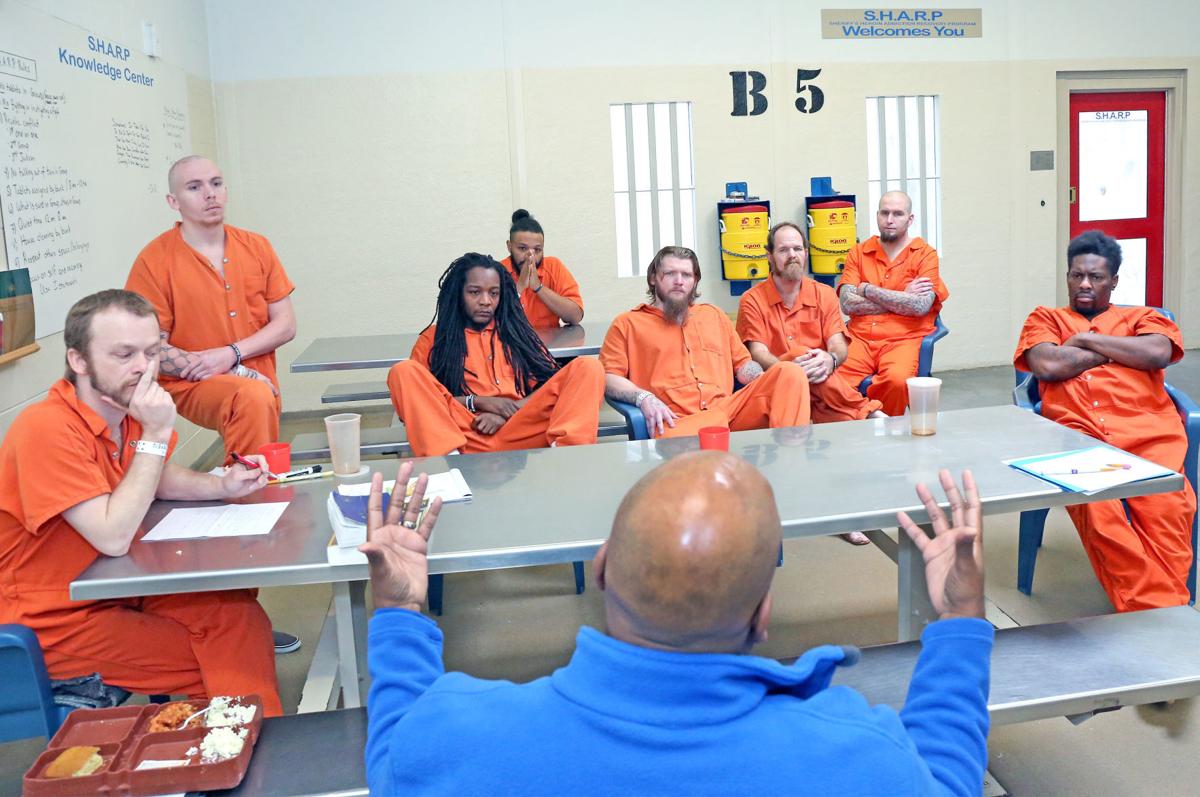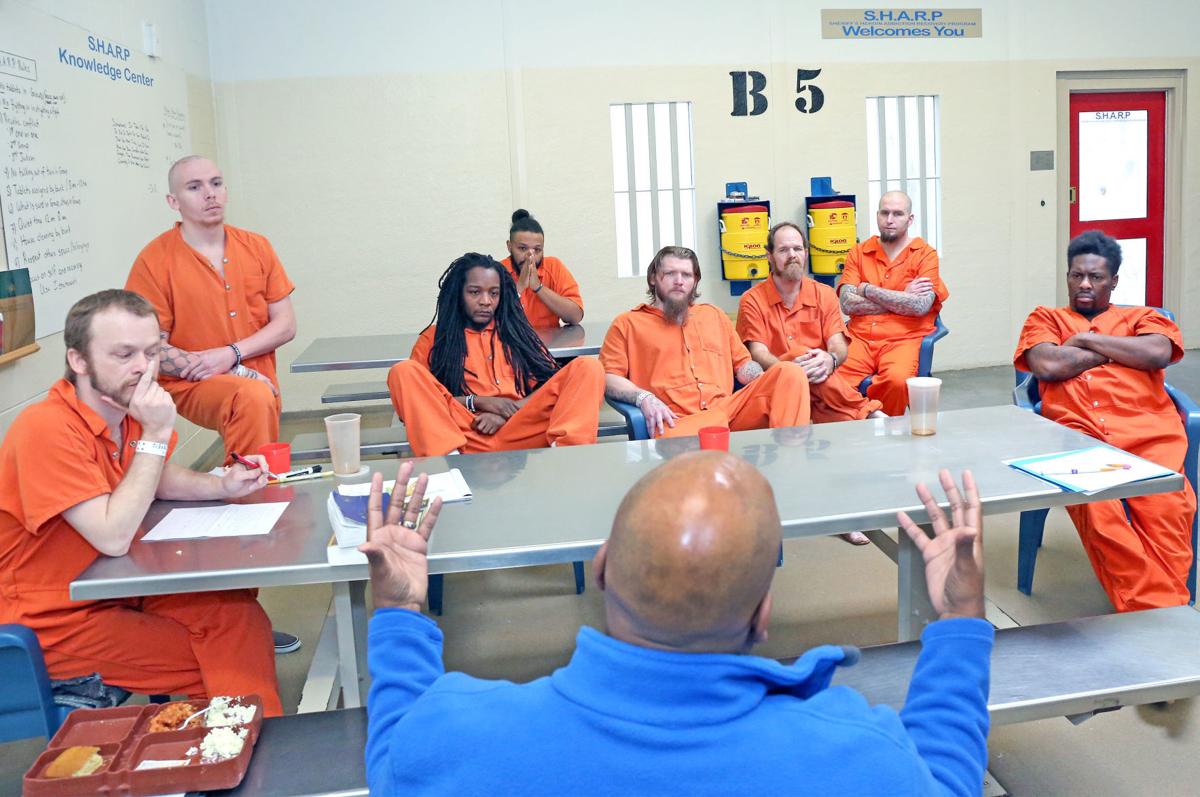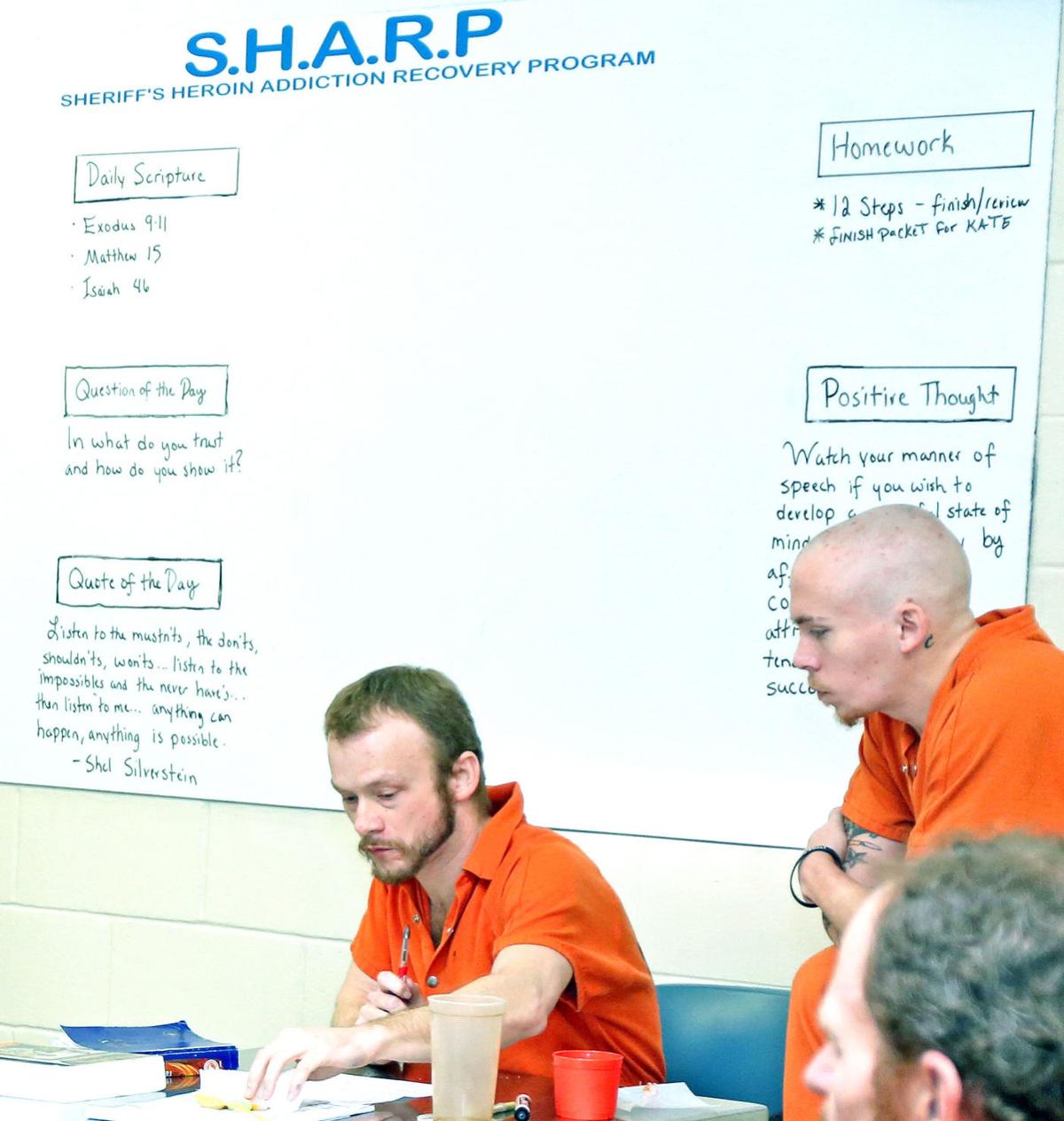Raising up inmates requires community buy in



Inmates at the Pitt County Detention Center struggling with drug addiction and substance abuse are receiving medication-assisted treatment to aid in their recovery and help them focus on putting their lives back together.
This treatment is one of many tools that Pitt County Sheriff Paula Dance is using to help rehabilitate inmates and set them up for success, so they don’t return to jail when they’re released.
In July, Dance created the Sheriff’s Heroin Addiction Recovery Program, also known as SHARP. The program, which only is available to male inmates, offers a structured environment similar to that of a military school while also offering counseling, spiritual support, life skills, and educational and vocational opportunities to detention center inmates to prepare them for a clean life after they leave jail.
The inmates selected for the program get their own cell block to separate them from distractions as staff members provide a strict regimen of classes and activities throughout the day.
Earlier this month, Pitt Community College formally entered a training partnership with the Pitt County Detention Center as part of the effort to reduce the rate of recidivism among detainees.
In November, inmates started receiving medication-assisted treatment. The drug being administered is Naloxone, which is known most commonly as Narcan.
Naloxone can reverse and block the effects of opioids.
The new treatment option has helped Gerald Braswell, 46, of Belvoir, who is in jail for breaking and entering, non-support of a child and probation violation. His drug use spiked when his nephew, Michael Pollard, committed suicide in July.
Before Braswell came to The Pitt County Detention Center, he worked in construction.
“I basically grew up in home improvement,” Braswell said. “Painting is mostly what I did for 25-30 years. I did a little bit of flooring, putting in floors and doing a little bit of Sheetrock work.”
But Braswell became addicted to pills and his drug addiction took over his life. He cautioned people that drug addiction can happen to anyone.
“Drug addiction is a disease,” he said. “It is a disease but with proper help and proper support, you can stop using.”
Due to the SHARP program and medication-assisted treatment, Braswell is on his way to recovery. He recently completed his narcotics anonymous certificate and plans to further his vocational skills so he can work when he gets out.
“It’s an awesome program and it’s really changed my life,” Braswell said. “Anybody that has struggled with chemical dependency whether its opioid use or cocaine or any type of hard substance like that, it’s been very beneficial to my life and to my recovery and it’s an awesome group of people, an awesome group of guys in there.”
Braswell, who has three daughters, said as a result of his recovery, his relationship with his girls and his parents have improved dramatically.
“Me and my mother hadn’t talked for two years until I got in this program and got locked up, then me and her talked, I can’t even tell you how many times,” he said.
While some are critical of programs like SHARP and the medication-assisted treatment it offers, Braswell said people should not rush to judgment.
“Anybody out there that says, well it’s just another program, until you’re actually in here and you live it yourself, they’re just words,” he said. “Critics are a dime a dozen.”
Christopher Hahn, 24, of Greenville, who was jailed for assault on a female, habitual assault and violating a domestic violence protection order, is another inmate being helped by SHARP.
Before being incarcerated, Hahn struggled with drug addiction for six years.
“The last six years of my life has been in addiction, so I’m blind to the fact of actually having a life and actually having something to call my own,” Hahn said.
For the last few weeks, Hahn has been working on controlling his anger while also bettering himself as he prepares to work as a tattoo artist when he gets released.
“I’m actually furthering my education in the SHARP program,” he said. “Thank God for the SHARP program.”
Hahn is also working on his GED and has been taking classes using a tablet that is programmed by Pitt Community College.
“There’s so many things on those tablets man that I can’t even tell you,” Hahn said. “ While you’re doing the work on those tablets, you’re learning for yourself so you can show the community. You’re actually earning certificates and you get certificates to take home with you from those courses.”
Changing lives
Changing lives of inmates is what Programs Coordinator Jason Jackson loves the most about his work and that of the SHARP program.
Jackson, who has worked at prisons and also as a substance abuse counselor, said inmates need to have a plan when they get out jail so they don’t come back.
“All of the resources they receive here in jail, we want to make available to them when they get out,” Jackson said. “We’re trying to make it easy for them, with no excuses. We want to eliminate the excuses for them to get out and say, ‘I can’t get there.’”
The best part about the SHARP program and medication- assisted treatment is they are funded through a federal grant from the Bureau of Justice Assistance, he said.
Jackson added that programs like SHARP are necessity.
“I worked in prisons before I got here and I worked in the community doing substance abuse counseling,” Jackson said. “I’ve had clients who would literally go on the run for months because they were scared to go to jail because they knew they wouldn’t receive treatment.
“At that time it was an issue for me and I’m calling, saying. ‘Hey, can we do something in the jail because I have people who are piling up more charges because they’re scared.” Jackson saiid. “It became almost personal for me when I was working with them because they were my clients. They were my patients.
“We need to have that connection between the community, the jails and law enforcement,” Jackson said. “Everyone needs to work together in order to make the community better, make people better, make families better.
“This kind of closes the gap and bridges the gap between a lot of things,” he said. “I feel it’s very important and it’s something that is needed.”
Jackson said the purpose of jail is slowly changing.
“At one point it was about locking people up and getting them off the street,” he said. “And there are still some people with the mentality that everyone in jail is just a bad person and that’s where they need to be because they have done a bad act.
“We’re slowly transitioning into, ‘People make mistakes,’” Jackson said. “If we can help them change their thought processes and change their behavior, then they won’t make the same mistakes over and over again.”
Fewer inmates translates to savings for taxpayers, he said.
“We now have productive people who are working and paying taxes and creating businesses and creating jobs,” Jackson said. “It translates into a lot of money saved and a lot of money earned.”
Jackson said the cost of housing an inmate at the Pitt County Detention Center can range between $80 and $100 per day, and the detention center currently houses almost 500 inmates.
Jackson said the population averages about 9,000-10,000 inmates per month.
“In those numbers, between that 9,000 and 10,000 a month, there’s a lot of recidivism,” he said. “If we can keep those people out, the ones that are coming back two and three times, and keep them out of here, those numbers will significantly drop.”
Recently, Jackson heard from an inmate who graduated from the SHARP program and is working and doing well.
“One of the guys just called me the other day and said, ‘Man, Jackson, I’m buying a car, I bought a truck and I got insurance’ and he’s a 35-year-old man that’s never had anything in his life because of drugs,” Jackson said. “Now he’s learned a different way.
“Something as simple as buying a car and getting insurance on it was like winning the lottery to him,” Jackson said. “He knows how to save his money now, he knows how to spend it wisely now. He can save it now. He has a pocket full of money now. It’s not gone as soon as he gets it.
“You see a lot of good things, a lot of good results already,” Jackson said.
 Pathways Drug Rehabilitation Luxury Addiction Treatment & Detox Center
Pathways Drug Rehabilitation Luxury Addiction Treatment & Detox Center


